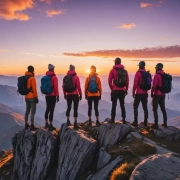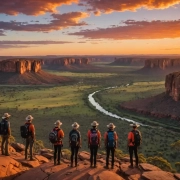Harnessing the Power of Experiential Marketing: Crafting Unforgettable Customer Journeys
In the bustling world of entrepreneurship, where every day feels like a new adventure, there’s a growing trend that’s catching the eye of business owners across Australia: experiential marketing. This approach isn’t just about selling a product or service; it’s about creating an experience that resonates with customers on a personal level. But what does this mean for your business, and how can you harness its power to propel your brand forward?
Experiential marketing is all about engaging your audience in a way that’s memorable and meaningful. Imagine inviting your customers to not just see your product, but to live it. It’s like hosting a party where your brand is the guest of honour, and everyone leaves with a story to tell. This isn’t just marketing; it’s an experience that fosters a deeper connection between your brand and your customers.
Now, you might be thinking, “Sounds great, but how do I actually do this?” Well, it starts with understanding your audience. What are their interests, their passions, their challenges? Once you’ve got a handle on that, you can craft experiences that speak directly to them. For instance, if you’re a fitness brand, why not host a pop-up workout event where participants can try your gear in action? Or if you’re in the food industry, consider a tasting event where customers can sample your latest creations.
But here’s the kicker: experiential marketing isn’t just about the big events. It’s also about the small, everyday interactions that make your customers feel valued. Ever tried adding a personal touch to your customer service? It’s a game-changer! A handwritten thank-you note or a surprise discount can turn a one-time buyer into a lifelong fan.
Speaking of adventures, the folks over at MyAdventure Group have a fantastic blog post that dives into the nuances of creating memorable experiences. Their insights are particularly valuable for those in the travel and adventure sectors, but the principles can be applied to any industry. I highly recommend checking out their article at MyAdventure Group’s blog. They offer a unique perspective on how to make your brand stand out in a crowded market.
Now, let’s talk about the impact of these experiences. When done right, experiential marketing can lead to increased brand loyalty, word-of-mouth referrals, and even new customer acquisition. People love to share their experiences, especially in today’s social media-driven world. A well-executed event or interaction can quickly go viral, reaching audiences far beyond your immediate customer base.
But remember, not every experience needs to be a grand spectacle. Sometimes, the most impactful moments are the simplest ones. Think about the last time you received unexpectedly great service. How did it make you feel? Chances are, it left a lasting impression. That’s the power of experiential marketing—creating moments that matter.
As you embark on your own journey to create memorable experiences, keep in mind that authenticity is key. Customers can spot a gimmick from a mile away, so ensure that your experiences are genuine and aligned with your brand values. This authenticity will resonate with your audience and foster a deeper connection.
For those looking to dive deeper into the world of experiential marketing, there’s a wealth of resources available. One particularly insightful read is the book “The Experience Economy” by B. Joseph Pine II and James H. Gilmore. It explores the shift from goods and services to experiences and offers practical advice on how to adapt your business strategy accordingly.
In conclusion, experiential marketing is more than just a trend—it’s a powerful tool for building lasting relationships with your customers. By creating experiences that are both memorable and meaningful, you can set your brand apart in a competitive landscape. So, why not take a page from MyAdventure Group’s book and start crafting experiences that your customers will never forget? After all, in the world of business, it’s not just about the destination; it’s about the journey.







